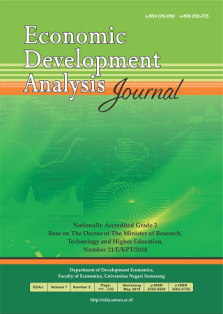Organic Waste Management Program Evaluation: A SROI and Action Research
Abstract
Company holds an important role in realizing sustainable development through CSR (Corporate Social Responsibility) programs. One of CSR program implemented by PT Badak NGL is community empowerment through community-based compost management. This study investigated social effects experienced by the stakeholders of environmental awareness community or Masdarling, and the extent of the social effects compared to the total investment made by PT Badak NGL. Quasi-qualitative was employed to carry out this study. Its data were analyzed using triangulation technique to map program advantages (qualitative) and Social Return on Investment-SROI (quantitative) approach. Meanwhile, the data themselves were collected using in-depth interview, Focus Group Discussion, and secondary data review. Based on the data analysis, it was found that the community-based compost management done in Masdarling village in the period of 2018-2020 obtained the SROI ration of 1.59, meaning that every 1 rupiah invested gained a benefit of 1.59 rupiah. This shows that this program is still categorized as feasible. In addition, the highest benefit felt by the compost stakeholders and Telihan Village officers was due to the addition of income for the members of compost management and the savings felt by people in Neighborhood or RT 26.


